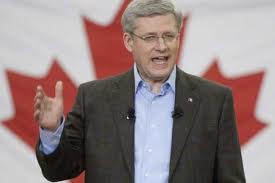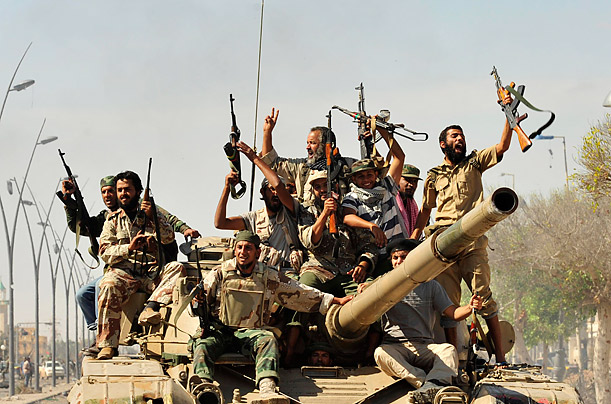Canada’s Insidious Role in the US-NATO War on Libya: “Boots on the Ground”

Since the start of the Canadian election campaign a series of posts have detailed the Harper Conservatives repeated abuse of power. The Tyee published “Harper, Serial Abuser of Power”, which listed “70 Harper government assaults on democracy and the law.” But the widely disseminated list omitted what may be the Conservatives’ most flagrant – and far-reaching –lawbreaking. In 2011 Ottawa defied UN Security Council Resolutions (UNSCR) 1970 and 1973, which were passed amidst the uprising against Muammar Gaddafi’s four-decade rule in Libya.
In direct contravention of these legally binding resolutions, Canadian troops were on the ground in the North African country. On September 13, three weeks after Tripoli fell to the anti-Gaddafi National Transition Council, Canada’s state broadcaster reported: “CBC News has learned there are members of the Canadian Forces on the ground in Libya.”[i] A number of other media outlets reported that highly secretive Canadian special forces were fighting in Libya. On February 28, CTV.ca reported “that Canadian special forces are also on the ground in Libya” while Esprit du Corp editor Scott Taylor noted Canadian Special Operations Regiment’s flag colours in the Conservatives’ post-war celebration. But, any Canadian ‘boots on the ground’ in Libya violated UNSCR 1973, which explicitly excluded “a foreign occupation force of any form on any part of Libyan territory.”
The Conservative government also directly armed the rebels in contravention of international law. Waterloo-based Aeryon Scout Micro supplied the rebels with a three-pound, backpack-sized Unmanned Aerial Vehicle. The director of field support for the company, Charles Barlow, traveled 18 hours on a rebel operated boat from Malta to the rebels training facility in Misrata. There, Barlow taught the rebels how to operate this Canadian-developed drone, which was used to gather intelligence on the front lines. In an interview after Gaddafi’s death, Barlow said: “I hope we did a little tiny part to help get rid of that man.”
According to various reports the drone was paid for out of Libyan government assets frozen in Canada.[ii] Aeryon CEO Dave Kroetsch said the company was “approached by the Canadian government.” But, in April 2011 Foreign Affairs officials advised then foreign minister Lawrence Cannon that providing military assistance to the Libyan rebels contravened UNSCR 1970. Based on documents uncovered through the Access to Information Act, Project Ploughshares reported: “A ‘Memorandum for Action’ signed by the Minister on April 11, noted that under the UN Security Council resolution that established the arms embargo against Libya, ‘Canada generally cannot permit the export of arms to Libya without the prior approval of the UN 1970 Sanctions Committee.’
The memo also stated that the arms embargo ‘encompasses any type of weapon … as well as technical assistance such as the provision of instruction, training or intelligence.’ It confirms that the UN arms embargo on Libya precluded the transfer of the Canadian surveillance drone to Libyan opposition forces. However, the memo also provided an interpretive feint for Canada by which it could allow the drone to be exported. It noted that Security Council Resolution 1973 contains language that key partners the US, the UK and France interpreted as permitting provision of arms to Libyan opposition forces as part of ‘all necessary measures … to protect civilians.’ The memo was clear that this interpretation was not shared by many other states, including NATO allies Italy and Norway.”
The government failed to inform all departments about its interpretive feint. In early 2012 a Canadian Forces website plainly stated that UNSCR 1970 “called for an international arms embargo on Libya” and “[UNSCR] 1973 of 17 March, which strengthened the arms embargo.”
Montréal-based security firm Garda World also contravened international law. Sometime in the “summer of 2011”, according to its website, Garda began operating in the country.[iii] After the National Transition Council captured Tripoli (six weeks before Muammar Gaddafi was killed in Sirte on October 20, 2011) the rebels requested Garda’s assistance in bringing their forces “besieging the pro-Qaddafi stronghold of Sirte to hospitals in Misrata”, reported Bloomberg.[iv] UNSCR 1970 specifically mandated all UN member states “to prevent the provision of armed mercenary personnel” into Libya. Resolution 1973 reinforced the arms embargo, mentioning “armed mercenary personnel” in three different contexts.
In an article titled “Mercenaries in Libya: Ramifications of the Treatment of ‘Armed Mercenary Personnel’ under the Arms Embargo for Private Military Company Contractors”, Hin-Yan Liu points out that the Security Council’s “explicit use of the broader term ‘armed mercenary personnel’ is likely to include a significant category of contractors working for Private Military Companies (PMCs).”[v]
Canadian officials probably introduced the rebels to Garda, the world’s largest privately held security firm. In fact, Ottawa may have paid Garda to help the rebels. As mentioned, the federal government used some of the $2.2 billion it froze in Libyan assets in Canada to pay Aeryon Scout to equip and train the rebels with a UAV.[vi]
After Gaddafi was killed the Conservatives spent $850,000 on a nationally televised war celebration for the troops that fought in Libya. Harper called it “a day of honour… Soldier for soldier, sailor for sailor, airman for airman, the Canadian Armed Forces are the best in the world.”
But don’t expect the Prime Minister to discuss Libya during the election. “Since Col Gaddafi’s death in Sirte in October 2011,” the BBC reported recently, “Libya has descended into chaos, with various militias fighting for power.” ISIS has taken control of parts of the country while a government in Tripoli and another in Benghazi claim national authority.
The Conservatives’ violation of international law delivered a terrible blow to Libya. If international affairs weren’t largely defined by the ‘might makes right’ principle Harper would find himself in the dock.
Yves Engler is the author of The Ugly Canadian: Stephen Harper’s foreign policy. His Canada in Africa — 300 years of Aid and Exploitation will be published in September and he will be speaking across the country in the lead up to the election. For information on speaking engagements go to Yvesengler.com
Notes
[ii] Canadian drone helped rebels in Libya, AFP, Aug 24 2011 (http://www.spacedaily.com/reports/Canadian_drone_helped_rebels_in_Libya_999.html)
[iii] Why GardaWorld in Libya? (http://www.garda-world.com/locations/info/libya)
[iv] Sarah A. Topol, As Libya War Winds Down, Security Consultants Tout Iraq, Afghan Experience, Bloomberg, Sept 21 2011 (http://www.bloomberg.com/bw/magazine/as-war-winds-down-in-libya-enter-the-consultants-09212011.html)
[v] Hin-Yan Liu, Mercenaries in Libya: Ramifications of the Treatment of ‘Armed Mercenary Personnel’ under the Arms Embargo for Private Military Company Contractors, Journal of Conflict & Security Law, Vol 16, No 2, 2011
[vi] Canadian drone helped rebels in Libya, AFP, Aug 24 2011 (http://www.spacedaily.com/reports/Canadian_drone_helped_rebels_in_Libya_999.html)


